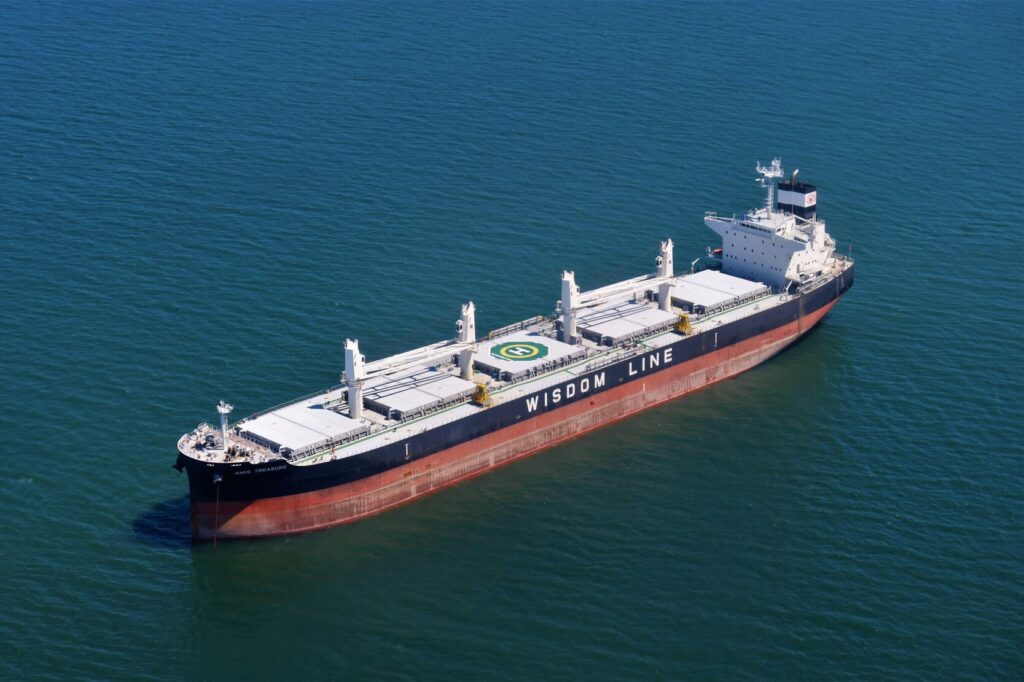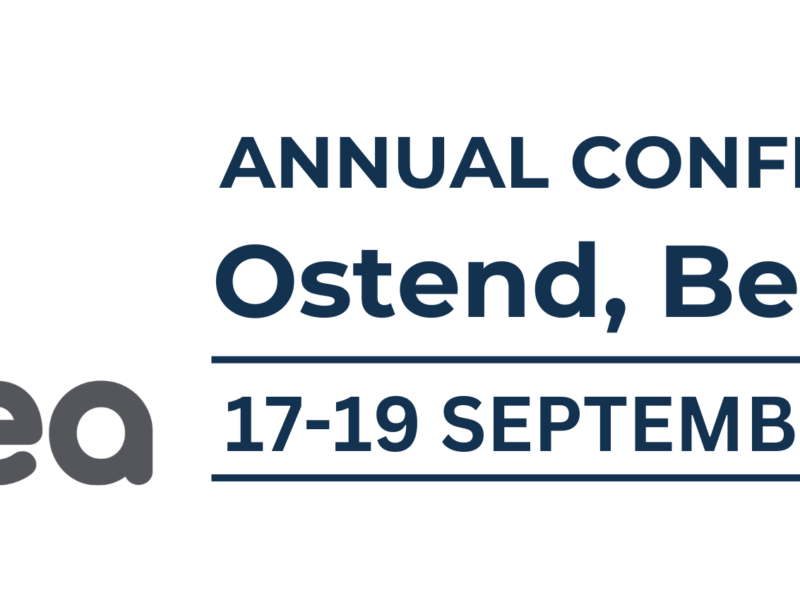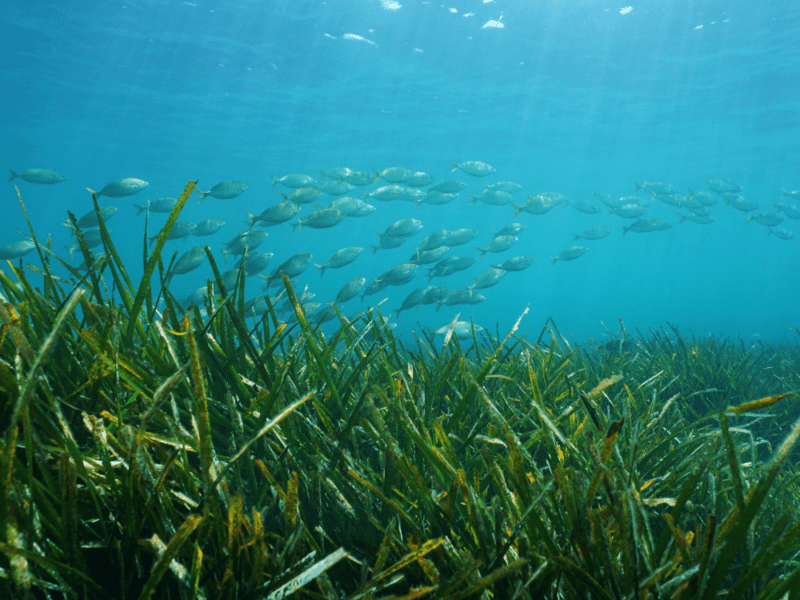
How Businesses Can Benefit from the Ocean Responsibly
How Businesses Can Benefit from the Ocean Responsibly https://pharosproject.eu/wp-content/uploads/2025/10/chris-linnett-4tRq8pDGWAI-unsplash-2-1024x682.jpg 1024 682 PHAROS Project PHAROS Project https://pharosproject.eu/wp-content/uploads/2025/10/chris-linnett-4tRq8pDGWAI-unsplash-2-1024x682.jpgThe ocean represents one of the world’s most powerful economic engines, generating an estimated $2.5 trillion annually and supporting over 600 million jobs globally. Yet this vast blue economy faces unprecedented challenges from climate change, biodiversity loss, and pollution that threaten its long-term viability. The question is no longer whether businesses should engage with ocean sustainability, but how they can transform their operations to both benefit from and protect this critical resource for future generations.
A Multi-Trillion Dollar Opportunity
The ocean economy has demonstrated remarkable resilience and growth potential. Between 1995 and 2020, it doubled in size to $2.6 trillion, consistently outpacing global economic expansion. The 100 largest blue economy companies generated $1.1 trillion in revenues in 2018, representing 60% of all ocean-related economic activity. Looking ahead, projections suggest the ocean economy could reach $3.2 trillion by 2030, with the blue economy market expected to grow at a CAGR of 6.4% to reach $5.3 trillion by 2034.
This growth spans diverse sectors beyond traditional fishing and shipping. High-tech and manufacturing industries now account for 16% of ocean trade, including pharmaceuticals, clean energy, and biotechnology. Marine biotechnology alone, valued at $4.2 billion in 2023, is projected to reach $6.4 billion by 2025. A $10.8 billion market for marine-based plastic substitutes is emerging, demonstrating how environmental solutions can create substantial economic value.
However, this economic potential comes with significant risks. Climate-induced declines in ocean health are projected to cost the global economy $428 billion per year by 2050 and $1.98 trillion annually by 2100. The 30% increase in ocean acidity since the industrial revolution threatens shell-forming species and entire marine food webs, with cascading effects on fisheries, aquaculture, and tourism industries.
Bringing Business Voices to Global Ocean Governance
The UN Ocean Decade and International Frameworks
The UN Decade of Ocean Science for Sustainable Development (2021-2030) presents unprecedented opportunities for business engagement in ocean stewardship. This global initiative specifically recognizes that no sector or company alone can solve ocean challenges; business must be at the table for scaling solutions. Private sector participation offers several strategic advantages:
- Access to global networks of leading ocean science institutions
- Opportunities to lead innovation in scientific approaches to ocean management
- Unique perspectives to identify investment opportunities through innovative financing
- Enhanced corporate reputation through association with high-visibility, coordinated international efforts
The BBNJ Agreement (High Seas Treaty), which entered into force in 2025 after reaching 60 ratifications, creates new frameworks for businesses operating in international waters. This agreement addresses marine genetic resources, area-based management tools, environmental impact assessments, and capacity-building, establishing legal requirements that will reshape how companies conduct business beyond national jurisdictions.
A Platform for Corporate Leadership
The World Ocean Council (WOC) serves as the primary international alliance of ocean business leaders, connecting companies across shipping, energy, aquaculture, seafood, tourism, technology, and finance sectors. With a network of 35,000 stakeholders worldwide, WOC functions as a neutral platform bridging business, science, and policy.
WOC’s approach focuses on four key areas that align with international policy priorities:
- Finance and investment in sustainable ocean solutions
- Port cities and resilience planning for climate adaptation
- Marine spatial planning that balances economic and environmental needs
- Smart ocean technology deployment for monitoring and management
The organization’s Corporate Ocean Responsibility framework provides businesses with practical tools for engaging with international ocean governance, ensuring their voices are heard in policy development while demonstrating leadership in sustainable practices.
Lisa Simone de Grunt serves as Director of Programmes at the World Ocean Council, a global cross-sector alliance that unites maritime industries, shipping, fisheries, aquaculture, finance, and tourism to represent the entire ocean economy. In this role, she oversees strategic initiatives that bridge the gap between business operations and ocean sustainability.
De Grunt emphasizes WOC’s critical role as a neutral convening platform, bringing together diverse stakeholders to address complex ocean challenges. “By bringing industry voices into global governance debates, WOC helps align corporate practices with science and policy,” she explains. This positioning allows the organization to facilitate meaningful dialogue between sectors that might not otherwise collaborate, creating opportunities for systemic solutions to ocean sustainability challenges.
The organization focuses on six key program areas that reflect the most pressing needs of the ocean economy:
- Blue Finance initiatives that mobilize capital for sustainable ocean investments
- Smart Ocean technology deployment for enhanced monitoring and management
- Resilience strategies for ports and cities facing climate impacts
- Marine spatial planning that balances economic and environmental priorities
- Climate and biodiversity action across ocean sectors
- Cross-cutting governance engagement with international frameworks
Looking ahead, de Grunt highlights WOC’s preparation for two major events in Barcelona in November 2025: the Sustainable Ocean Summit and the Global Blue Finance Summit. These gatherings will bring together corporate leaders, policymakers, and scientists to accelerate progress on ocean sustainability initiatives and showcase innovative financing mechanisms for blue economy development.
Through these strategic programs and high-profile convening events, WOC demonstrates how Corporate Ocean Responsibility can be operationalized at scale, providing businesses with practical frameworks for contributing to ocean health while maintaining competitive advantage in the global marketplace.
Understanding Cumulative and Cross-Cutting Ocean Impacts
Climate Change and Ocean Systems
Climate change represents the most significant threat multiplier for ocean health, with direct consequences for business operations. The ocean has absorbed one-third of human-generated CO2 and over 90% of excess atmospheric heat, fundamentally altering marine ecosystems. These changes manifest in several ways that directly impact business:
Ocean Acidification poses particular risks to industries dependent on shell-forming species. The 30% increase in ocean acidity since pre-industrial times threatens shellfish industries, with Alaska’s economy particularly vulnerable due to its dependence on crab and salmon fisheries. Research shows that some marine organisms’ shells are now 76% thinner than they were 150 years ago.
Temperature and Circulation Changes affect fish stock distributions and productivity, forcing fishing industries to adapt to new patterns. Climate change is reducing productivities and changing spatial distributions of economically important marine species, with implications for food security and coastal livelihoods.
Sea Level Rise and Extreme Weather threaten coastal infrastructure, ports, and tourism facilities. Coastal tourism, which accounts for 29% of EU blue economy value, faces increasing risks from storm surge, erosion, and habitat loss.
Biodiversity Loss and Ecosystem Collapse
Marine biodiversity underpins the ocean’s capacity to support economic activity. Overfishing has resulted in 34% of global fish stocks being overexploited, while habitat destruction and pollution further degrade marine ecosystems. The economic consequences are severe:
- $36 billion in annual revenue losses for the global fishing industry due to depleted stocks
- Collapse of entire regional fisheries, such as North Atlantic cod, resulting in over 35,000 job losses and $2 billion in economic damage
- Reduced tourism revenue as coral reefs and marine biodiversity decline, affecting diving and marine tourism operations.
- Supply chain disruptions as traditional fishing grounds become unproductive
Geopolitical Tensions and Supply Chain Risks
Ocean-dependent industries face increasing geopolitical risks as nations compete for marine resources and shipping routes. 90% of global trade moves by sea, making maritime transport vulnerable to geopolitical tensions, piracy, and territorial disputes. Climate change exacerbates these risks by:
- Altering traditional fishing grounds, creating potential conflicts over marine resources
- Opening new shipping routes in the Arctic while closing others, requiring significant infrastructure investments
- Increasing migration pressures from coastal communities affected by sea level rise and extreme weather
- Disrupting global supply chains through port closures and shipping delays caused by extreme weather events
Scaling Solutions Through Cross-Sector Collaboration
Marine Spatial Planning and Business Integration
Marine Spatial Planning (MSP) provides a framework for balancing economic development with environmental protection. In the European Union, MSP is explicitly designed to promote sustainable growth of the blue economy. Successful MSP requires meaningful business sector involvement at multiple scales:
Local Level Engagement: Small and medium enterprises often have detailed knowledge of local conditions and can provide valuable input on practical implementation challenges. Local fishing operations, marina operators, and coastal tourism businesses offer insights that large-scale planning cannot capture.
Regional and National Coordination: Industry associations and large corporations can represent broader sectoral interests and provide resources for comprehensive planning. Maritime transport companies, for example, can offer expertise on shipping lane optimization and port development needs.
International Collaboration: Multinational corporations operating across borders can facilitate coordination between different national MSP processes, ensuring consistency and reducing regulatory fragmentation.
Research in the Baltic Sea region shows that business sector involvement in MSP is most effective when it includes both individual companies and representative organizations. Planners find it resource-effective to interact with representatives who have broad sectoral knowledge, while also engaging individual companies for local or regional insights.
Smart Ocean Technology and Data Sharing
The deployment of smart ocean technologies represents a critical opportunity for businesses to contribute to ocean monitoring while improving their operational efficiency. The World Ocean Council’s SMART Ocean initiative demonstrates how industry can collaborate with scientific institutions to:
- Install monitoring equipment on commercial vessels operating in priority data collection areas
- Share operational data that contributes to national and international science programs
- Develop cost-effective, ship-suitable technologies that serve both commercial and scientific purposes
- Create value propositions that benefit both industry operations and ocean science
Examples of successful smart ocean technology deployment include:
- Smart buoys that provide real-time weather and oceanographic data while helping fishing operations optimize routes and reduce fuel consumption
- Autonomous underwater vehicles that monitor marine ecosystems while supporting offshore energy operations
- Satellite-based monitoring systems that track vessel emissions and illegal fishing while optimizing shipping routes
Corporate Ocean Responsibility and ESG Integration
Current State of Marine ESG Reporting
Despite growing recognition of ocean importance, marine indicators remain underrepresented in corporate ESG reporting frameworks. A comprehensive study of sustainability standards found significant deficiencies in marine metrics and indicators, with most environmental measures focused on terrestrial impacts. This represents a critical gap, as integrating marine indicators into ESG frameworks is crucial for balanced environmental assessment.
Current challenges in corporate ocean reporting include:
- Inconsistent reporting measures across companies and sectors
- Limited organizational knowledge about appropriate marine impact metrics
- Qualitative rather than quantitative assessments of ocean-related impacts
- Superficial metrics that provide high-level overviews rather than detailed impact analysis
Many executives acknowledge that marine life reporting is not prioritized compared to other environmental issues, partly because ocean impacts are less visible to the general public. This creates an opportunity for forward-thinking companies to differentiate themselves through comprehensive ocean impact assessment and reporting.
Developing Robust Ocean Impact Frameworks
The emergence of science-based frameworks for ocean impact assessment provides businesses with tools to measure and manage their marine-related impacts systematically. The Ocean Impact Initiative represents the first science-based framework designed specifically to address business impacts on marine ecosystems, incorporating:
- Sustainability risk management approaches tailored to marine environments
- Multi-stakeholder input from scientists, policymakers, and industry experts
- Integration with sustainable finance requirements and investor expectations
- Disclosure and reporting standards that enable meaningful comparison across companies
Effective ocean impact frameworks must address both direct and indirect environmental and social aspects, requiring companies to:
- Assess their entire value chain for ocean-related impacts
- Incorporate governance values that prioritize long-term ocean health
- Demonstrate leadership commitment to continuous improvement in sustainability performance
- Engage stakeholders including coastal communities, environmental organizations, and scientific institutions
Financial Innovation and Ocean Investment
The development of blue finance mechanisms is crucial for scaling ocean sustainability investments. The Ocean Investment Protocol, launched at the 2025 UN Ocean Conference, provides actionable steps for financial institutions, insurers, ocean industries, and governments to scale investment in sustainable ocean sectors. Key opportunities include:
Decarbonizing Maritime Transport: The shipping industry, responsible for transporting 90% of global goods, faces increasing pressure to reduce emissions. Investments in alternative fuels, energy-efficient technologies, and port electrification offer significant market opportunities.
Offshore Renewable Energy: The offshore wind sector has shown 326% growth in nominal GVA between 2015 and 2021 in the EU alone. Wave and tidal energy technologies are emerging as complementary solutions, with companies like Mocean and Triton Anchor developing innovative approaches to ocean energy generation.
Sustainable Aquaculture and Fisheries: Integrated Multi-Trophic Aquaculture (IMTA) systems that combine fish farming with seaweed and shellfish cultivation offer opportunities to restore marine habitats while supporting food production. These systems demonstrate how economic activity can contribute to ecosystem resilience rather than degradation.
Blue Carbon and Nature-Based Solutions: Investment in mangrove restoration, seagrass conservation, and coastal wetland protection provides both climate mitigation benefits and economic returns. Research shows that every $1 invested in mangrove conservation and restoration generates $3 in benefits, with conservation projects showing benefit-cost ratios as high as 88-to-1.
Progress Toward Regeneration and Systems Change
From Sustainability to Regeneration
The concept of regenerative ocean economy represents an evolution beyond traditional sustainability approaches. Rather than simply minimizing negative impacts, regenerative business models actively restore ocean health while supporting human communities. This transformation requires:
Moving from Extractive to Productive Relationships: Companies like INVERSA Leathers demonstrate this approach by creating regenerative leather from invasive lionfish, simultaneously addressing an environmental problem and creating economic value. The company partners with local fishers and divers, providing 100% catch-to-cash guarantees and premium incentives for invasive species removal.
Circular Economy Integration: Companies such as Bureo have collected over 15 million pounds of discarded fishing nets across eight countries, transforming them into high-quality recycled materials used by global brands like Patagonia and Burton. This approach addresses the critical problem of marine plastic pollution while creating new revenue streams.
Multi-functional Ocean Use: Projects like Mingyang Smart Energy’s integrated offshore wind and aquaculture system demonstrate how marine spaces can serve multiple purposes. By co-locating wind turbines with fish farming operations, the project maximizes spatial efficiency while reducing ecological footprint.
Enhanced Monitoring and Compliance Systems
Technological advances are enabling unprecedented levels of ocean monitoring and compliance verification. Digital twin technologies, artificial intelligence, and satellite monitoring create opportunities for:
Real-time Impact Assessment: Companies can now monitor their ocean impacts in real-time using sensor networks and satellite data, enabling rapid response to environmental changes and regulatory compliance verification.
Supply Chain Transparency: Blockchain-enabled traceability systems allow companies to verify the sustainability of their marine-sourced products throughout the supply chain, from fishing vessel to consumer.
Automated Compliance Reporting: AI-powered systems can automatically generate ESG reports incorporating real-time ocean data, reducing reporting costs while improving accuracy and timeliness.
Transforming Value Chains Through Ocean Stewardship
Leading companies are demonstrating how ocean stewardship can be embedded throughout value chains to create competitive advantage:
Seafood Business for Ocean Stewardship (SeaBOS): This initiative connects the world’s largest seafood companies, including Maruha Nichiro Corporation, Thai Union Group, and Marine Harvest, in collaborative efforts to address ocean sustainability challenges. The initiative recognizes that keystone companies can have disproportionate effects on marine ecosystem health.
Collaborative Innovation Platforms: The Ocean 100 Dialogues bring together corporate leaders across industries to develop science-based platforms for ocean stewardship. These initiatives focus on cross-industry commitments addressing biodiversity loss, climate change, and ocean equity.
Investment in Ocean Solutions: Companies are increasingly investing in ocean-based climate solutions, recognizing that ocean-based interventions can close up to 35% of the global emissions gap for the 1.5°C pathway. This includes investments in offshore renewables, marine carbon removal, and sustainable maritime transport.
Building a Thriving Ocean Economy for the Future
The transformation toward a sustainable and regenerative ocean economy requires unprecedented collaboration between business, science, and policy. Companies that embrace Corporate Ocean Responsibility are not only contributing to global sustainability goals but also positioning themselves for long-term success in an ocean-dependent world.
The evidence is clear: sustainable ocean-based investments yield benefits at least five times greater than costs, with benefit-cost ratios ranging from 3-to-1 to 12-to-1 depending on the intervention. By investing $2.0-$3.7 trillion globally across key ocean sustainability areas, the world could generate $8.2-$22.8 trillion in net benefits over 30 years.
Success requires businesses to move beyond compliance-based thinking toward proactive stewardship. This means integrating ocean health into core business strategies, participating actively in international governance processes, and collaborating across sectors to address systemic challenges that no single company can solve alone.
The ocean has supported human civilization for millennia, providing food, transportation, climate regulation, and countless other services. Now, as we face unprecedented pressures on marine systems, the business community has both the opportunity and the responsibility to ensure that this blue planet continues to thrive. By embracing Corporate Ocean Responsibility, companies can build profitable businesses that contribute to ocean health, creating value for shareholders, stakeholders, and future generations alike.
The time for half-measures has passed. The businesses that will thrive in the coming decades are those that recognize the ocean not as an inexhaustible resource to be exploited, but as a complex, interconnected system requiring careful stewardship. Through collaborative leadership, innovative financing, and regenerative practices, the private sector can lead the transformation toward a truly sustainable ocean economy, one that benefits both business and the blue planet that sustains us all.
Sources
- https://unctad.org/news/fast-growing-trillion-dollar-ocean-economy-goes-beyond-fishing-and-shipping
- https://www3.weforum.org/docs/WEF_What_Ocean_Sustainability_Means_for_Business.pdf
- https://market.us/report/blue-economy-market/
- https://www.oecd.org/en/blogs/2025/03/10-ocean-economy-facts-you-need-to-know.html
- https://oceanriskalliance.org/opinions/the-business-case-for-a-sustainable-blue-economy/
- https://oceanpanel.org/wp-content/uploads/2022/05/The-Expected-Impacts-of-Climate-Change-on-the-Ocean-Economy.pdf
- https://www.climatecentral.org/news/marine-economy-takes-a-dive-as-ocean-acidity-rises-17878
- https://www.bluecluster.be/news/the-ocean-decade-a-unique-opportunity-for-the-private-sector
- https://www.un.org/bbnjagreement/en
- https://highseasalliance.org/2025/09/19/historic-milestone-for-global-ocean-protection-60th-ratification-triggers-entry-into-force-of-high-seas-treaty/
- https://worldoceancouncil.org
- https://worldoceancouncil.org/about-us/
- https://www.renewablematter.eu/en/measuring-the-impacts-of-companies-on-the-ocean-for-a-sustainable-blue-economy
- https://www.climateimpactstracker.com/ocean-acidification-effects-on-tourism-industry/
- https://www.unh.edu/unhtoday/how-could-ocean-acidification-impact-new-englands-fisheries
- https://oceans-and-fisheries.ec.europa.eu/news/eu-blue-economy-report-2024-innovation-and-sustainability-drive-growth-2024-05-30_en
- https://www.marinebiodiversity.ca/the-hidden-price-of-empty-oceans-how-overfishing-is-crushing-global-economies/
- https://www.utupub.fi/handle/10024/165234
- https://www.sciencedirect.com/science/article/pii/S0308597X20309465
- https://www.nautinst.org/resources-page/marine-spatial-planning-a-guide-for-maritime-professionals.html
- https://eo4society.esa.int/wp-content/uploads/2019/10/11-WOC-Paul-Holthus-SMART-Ocean-–-SMART-Industries.pdf
- https://www.bearingpoint.com/en/about-us/news-and-media/press-releases/bearingpoint-partners-with-smart-ocean/
- https://www.consultancy.eu/news/11051/smart-ocean-taps-bearingpoint-for-strategic-and-capital-raising-guidance
- https://www.hydro-international.com/content/article/the-silicon-valley-of-smart-ocean-technologies
- Posted In:
- BLOG

